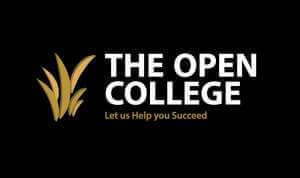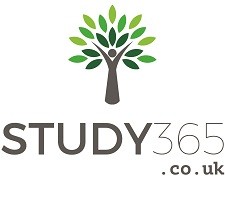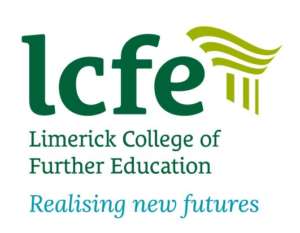Topics covered include:
- Composition of Food
- Nutrition and Health
- Nutrition and Exercise
- Food Labelling.
Unit Details
Unit 1 Composition of Food
Learners should be able to:
- outline the main constituents of food
- outline the functions of food, specifying the different classes of nutrients and the main functions of each type
- list the energy values of the different food types
- list the factors that affect the energy requirement of an individual
- explain the following terms: basal metabolic rate (BMR), reference nutrient intake (RNI)
- list the factors that can alter BMR
- label a diagram of the human digestive system
- list the functions of the digestive organs
- outline the process of digestion and absorption of nutrients in the human body.
FATS
Learners should be able to:
- distinguish between the following fats: monounsaturated, polyunsaturated, saturated
- distinguish between essential and non-essential fatty acids
- outline the role of each type of fat in relation to health
- list food sources of essential fatty acids
- list the main sources of fat in the Irish diet
- list the effects of the deficiency and excess intake of fat
- test foods for the presence of fat.
CARBOHYDRATES
Learners should be able to:
- classify carbohydrates into: monosaccharide, disaccharide, polysaccharide
- distinguish between digestible and poorly digestible (non-starch polysaccharide NSP) carbohydrates
- discuss the importance of fibre in the diet
- list two sources of soluble fibre and two sources of insoluble fibre, and state possible health functions of each
- list main sources of carbohydrates in the Irish diet
- list effects of a low and a high carbohydrate diet
- test foods for the presence of carbohydrates.
PROTEINS
Learners should be able to:
- distinguish between essential and non-essential amino acids
- list the factors that affect the protein requirement of an individual
- explain the significance of protein energy malnutrition (P.E.M.)
- list the main sources of protein the Irish diet
- list the effects of protein deficiency in a diet
- test foods for the presence of proteins
- compare the protein content of foods derived from plants and animals.
VITAMINS AND MINERALS
Learners should be able to:
- outline the role of vitamins and minerals in maintaining good health
- explain why certain groups of people are at high risk of suffering vitamin and mineral deficiencies
- list the functions, sources, deficiency symptoms and the effects of excessive intake of the fat-soluble vitamins (A, b-carotene, D,E, K)
- list the functions, sources and deficiency symptoms of folic acid
- list the functions, sources, deficiency symptoms and the effects of excessive intake of the water-soluble vitamins (B1 , B2 , B6 , B12, C)
- list the functions, sources and deficiency symptoms of the minerals (Fe, Ca, I, P, Na, Zn)
- list the trace elements that are required in the diet
- source information on the reference nutrient intake (RNI) for vitamins and minerals
- outline the factors that affect the absorption of minerals
- explain how the vitamin and mineral content of food can be preserved
- investigate the effects of preparation/cooking on the vitamin C content of food.
Unit 2 Nutrition and Health
Learners should be able to:
- list the current dietary recommendations of the: NACNE report (National Advisory Committee on Nutrition Education) and Health Promotion Unit of the Department of Health
- justify these current dietary recommendations
- discuss the importance of a balanced diet in maintaining good health
- discuss the role of the media in influencing peoples’ food choices e.g. BSE, butter vs. margarine, bottled water vs. tap water, high sugar foods
- compare the nutritional properties of different types of milk
- list the specific nutritional needs of: infants, children, adolescents, adults, the elderly
- discuss the factors that influence the eating habits of: children, adolescents, the elderly,
- discuss the causes, symptoms and effects of: anorexia nervosa, bulimia and obesity
- evaluate, for a child and an adult: a vegetarian diet, a vegan diet in terms of meeting their dietary requirements
- discuss the role of diet in coronary heart disease and hypertension
- discuss the role of diet in dental health
- discuss the possible links between diet and cancer
- list the factors that lead to the development of osteoporosis
- devise a suitable menu for the following groups: infants, school-going children, adolescents, pregnant women, vegetarians, vegans, athletes
- outline the role of diet in the treatment of the following: diabetes mellitus, coeliac disease, cystic fibrosis, lactose intolerance, P.K.U.
- list the different techniques for measuring the nutritional status of an individual
- summarise the nutritional intake of an individual using the 24- hour recall method
- compare the nutritional intake of an individual with the reference nutrient
- intake (RNI).
Unit 3 Nutrition and Exercise
Learners should be able to:
- explain the terms: nutritional status, glycogen loading, dehydration
- explain the effect of diet and nutritional status on physical performance
- explain how glycogen loading is achieved
- list the possible causes and effects of dehydration
- discuss the importance of high fluid intake at all times
- justify the need of fluid and electrolyte replacement before, during and after training and competition.
Unit 4 Food Labelling
Learners should be able to:
- specify the labelling of food products in accordance with EU regulations
- interpret the nutrition labels on a variety of food products
- explain the term “food additive”
- list the main categories of food additives
- distinguish between artificial and natural food additives
- explain the term “additive induced hyperactivity”
- explain the origin and significance of E numbers
- source information on E numbers.




